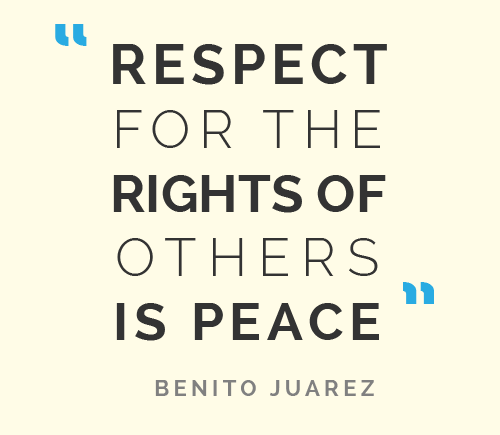DEFINITION OF A PEACEFUL SOCIETY: People living in peaceful societies try as much as possible to live in harmony and avoid violence: they shun aggressive behavior and refuse to fight in wars. In fact, avoiding violence—and perhaps just as critically, thinking and feeling that they must avoid it—is not only essential to many of these peoples, it is defining for them. Several of these societies see themselves as peaceful, and they clearly take pride in that peacefulness. For some of these peoples, their attitude is a striking contrast, in their minds, to other, manifestly less peaceful, societies with which they come in contact. For these nonviolent peoples, their very sense of defining themselves as peaceful is the foundation of their worldviews. Building interpersonal harmony and avoiding violence is essential to their ways of life.

LOCATIONS: Peaceful societies occur around the world, on most continents and on several islands, in a diversity of geographical regions, and in different types of biophysical and cultural environments.
DESCRIPTIONS: Some of the peaceful societies are very small, numbering in the hundreds of people, while others number in the tens of thousands, or more. These small-scale societies range from foragers to people who thrive at the fringes of contemporary high-tech societies. They hunt and gather, fish and forage, farm and trade, hide in the forest and run for the legislature.
DIFFERENCES AND SIMILARITIES: They have many different historical backgrounds, geographical settings, belief systems, social practices, and ways of life. The only common element that unites them is that they have firm convictions about the importance of maintaining peaceful lives, and they are, to a greater or lesser degree, successful in living according to those beliefs.
EXTENT OF THEIR NONVIOLENCE: There is no firm dichotomy between peaceful societies and all others. Instead, human societies appear to fall on a continuum: some are very violent, with frequent wars and recurring violence in their communities and homes. Others—most societies—fall in the middle: reasonably peaceful most of the time with only occasional wars and sporadic incidents of internal violence. A few societies, at the other end of the scale, experience very little if any violence or warfare. See Fry (2005) for a full discussion of this point.
FACTORS THAT FOSTER PEACEFULNESS
- Sociocultural systems. The psychological and social structures, mythologies, beliefs, religious convictions, and worldviews held by the peaceful societies strengthen their daily nonviolent lives. Many of the peaceful societies have social patterns that foster and reinforce nonviolence. For instance, while some of the peaceful societies have political leaders, they tend to not glorify leadership. Not surprisingly, the leaders of peaceful societies (those that have leaders) are generally not as bellicose as some of our contemporary world leaders.
- Sanctions. Some peaceful societies maintain their internal nonviolence through effective sanctions against deviant or aggressive behavior. Nonviolent punishments such as ostracism may help enforce social norms in some societies.
- Isolation. Some of the peaceful societies are able to maintain their nonviolence because they live in very isolated locations—islands, remote deserts, or dense forests. However, isolation is not the only factor. Many also have strong convictions that peacefulness is something that is very important to them. Some of them feel that nonviolence works, for them: it is a very practical way for them to exist in the world that they experience. Others feel that nonviolence is the way that God ordains them to live. For others, they have always lived that way and their belief system reinforces the ways they feel people should coexist.
- Flight and Separation. Some of the peaceful societies maintain their nonviolence by fleeing at the slightest hint of aggressiveness by outsiders. Furthermore, people in many of the societies break apart into new groups whenever internal strife or tensions threaten to disrupt the peacefulness of normal daily life.
HUMAN RELATIONSHIPS: One reason for reading about peaceful societies is to study different approaches to human relationships that may foster nonviolence. For example, very few people in the peaceful societies glorify individualism, ego-satisfaction, or material self-interest: they tend to cherish gentleness, nonaggression, and interpersonal harmony instead. They do not approach other human beings in a confrontational, aggressive, or violent fashion. Instead, they tend to relate to others, at least within their own societies, in a harmonious, nonviolent manner.
CONVINCING EVIDENCE: These facts about peaceful societies may surprise many visitors to this website who have not even heard that peaceful societies exist. One goal of this site is to make both basic information on peaceful societies and references to detailed scholarly work on them more accessible to interested persons. An effective way to begin learning about peaceful societies is to read the Best Books about them. Another is to read the scholarly literature we are scanning and adding to the Archive of Articles on Peaceful Societies. Then, follow up with the references provided in this website and in the bibliographies provided by the articles and books. Obtain works through major research libraries, via interlibrary loan, or through book dealers. Finally, contact us for further suggestions. The peaceful societies by themselves will not solve the problems of today’s world, but they will provide inspiration and, sometimes, suggest fresh approaches to building peacefulness and counteracting violence.
Sources in this Website. Sponsel 1996b
Updates: News and Reviews:
Current
July 2, 2015. Statistics about Peaceful Nation States
March 5, 2015. Unicorns, Peaceful Societies, and Peace Systems
January 22, 2015. Some Peaceful People Are Birdwatchers [a tenth anniversary reflection]
July 3, 2014. Birthday Wishes for Glenn Paige
July 25, 2013. Most Forager Bands Are Not Warlike [journal article review]
Older Stories
All stories in this website about peacefulness in general are listed in the News and Reviews Subject Listing.
